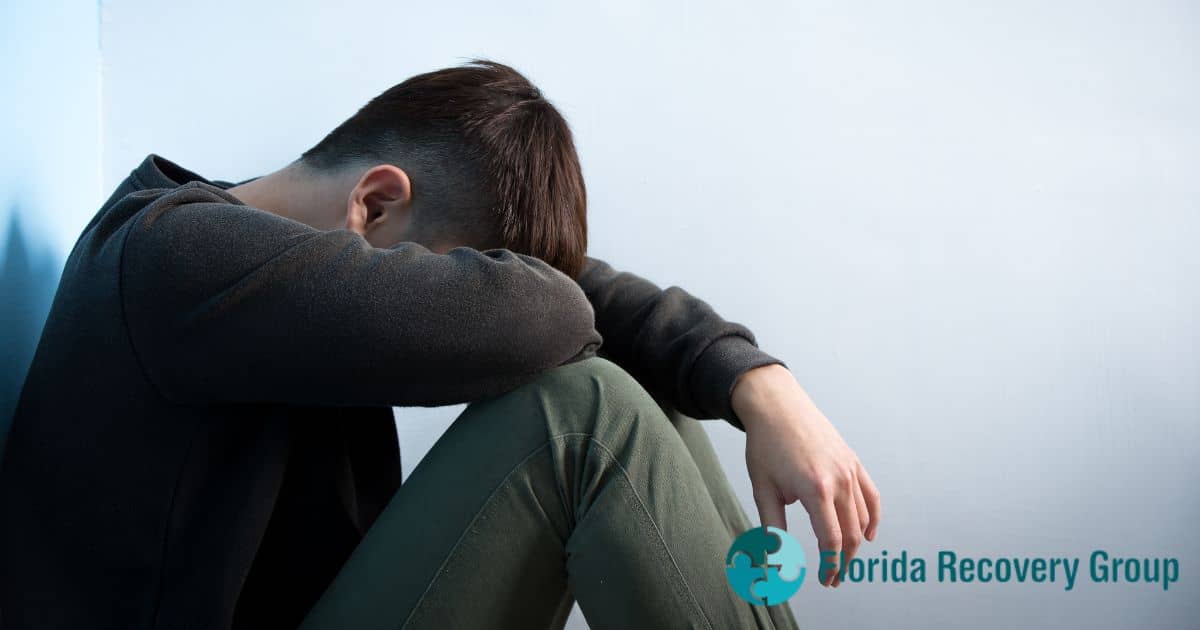
08 Jun What is a Depression Relapse and What Should You Do About it?
Depression is a mental health condition that causes people to experience prolonged feelings of sadness, hopelessness, and despair. This condition will negatively impact how you think, feel, and behave. Without treatment, depression can cause you to experience thoughts of self-harm or even suicide.
According to the World Health Organization (WHO), “Approximately 280 million people in the world have depression.”[1]
Because of how severe depression can become, it’s important to receive professional treatment. However, treatment for depression is never a cure. You must continue to manage your depression by using coping mechanisms, continuing therapy, or even taking daily medication.
When you stop managing your depression, you could experience a relapse. Depression relapses are characterized by the re-emergence of severe symptoms after you had been managing the condition effectively for some time. Since depression relapses can be extremely debilitating, you must be aware of how to respond in case you experience one.
What Causes a Depression Relapse?
Depression relapses can be caused by a multitude of factors. Additionally, it is important to note that relapses can happen at any time, even if you are staying vigilant in taking your medication and attending therapy. However, it is most common for depression relapse to occur after you experience a trigger.
Common triggers include:
- The death of a loved one
- Focusing on negative experiences or painful memories
- Stressful life events like moving, losing a job, or having an upcoming exam
- Getting a divorce
- Having your children move out or go to college
- Experiencing hormonal changes, like becoming pregnant or going through menopause
- Failing to stick to your treatment plan
The most common cause of depression relapse is stopping the treatment of your condition. Sometimes people stop doing the things that helped them recover once they start to feel better, such as stopping their medication. This can cause the symptoms of your depression to return, sometimes worse than they were before.
Symptoms of a Depression Relapse
If you are worried that you or a loved one is experiencing a depression relapse, being aware of the signs can help you determine what your next steps should be. Sometimes, relapse can be difficult to identify yourself, so it’s important to be aware of the symptoms, even if you are currently feeling healthy.
Symptoms of a depression relapse include:
- Feeling more irritable or getting annoyed easily
- Experiencing outbursts of anger
- Losing interest in hobbies or activities you usually enjoy
- Losing the attraction to your romantic partner
- Having a hard time concentrating or remembering important things
- Experiencing sleep problems, such as sleeping too much or having a hard time staying asleep
- Isolating yourself from your friends and family
- Feeling detached or alone during social situations
- Feeling down or sad for an extended period
- Experiencing weight or appetite changes (eating too much or too little)
- Feeling exhausted no matter how much rest you get
- Engaging in self-harming behaviors
- Increasing the amount of alcohol or substances you use to cope with your feelings
- Experiencing suicidal thoughts or ideation
If you or a loved one begin to experience the symptoms mentioned above, it’s time to consider doubling down on your therapy or getting back on medication. Mental health relapses can look different for anyone, which means you might only experience a couple of the symptoms or all of them. If you are not feeling as healthy as you did in the past, that is a good sign that you need some type of professional help.
What Should You Do When You Experience a Depression Relapse?
When you notice that you are experiencing depression again, it can be difficult to determine what you should do. Additionally, asking for help can seem like a daunting task. However, it is important to remember that reaching out for support is extremely important when dealing with depression.
If you are experiencing depression again, consider taking one or more of the following steps:
Go Back to Therapy
If you have stopped attending therapy and your depression has returned, you must make an appointment to start therapy again.
Depression can be extremely isolating and having a therapist to talk to can make all of the difference. However, you must assess how severe your symptoms are.
If you are experiencing thoughts of self-harm, suicidal ideation, or substance abuse, simply going back to therapy might not be enough.
Try Medication
If you are working with a therapist and are still experiencing the symptoms of depression relapse, it might be time to consider medication. Sometimes, depression is caused by a chemical imbalance in your brain. Medications like selective serotonin reuptake inhibitors (SSRIs) can give you the necessary chemicals to feel better.
Enter Inpatient Treatment
Lastly, if your symptoms are severe enough to hinder you from being able to complete daily tasks, you should consider inpatient mental health treatment. You must also enter treatment if you are experiencing thoughts of harming yourself. Inpatient treatment can seem scary, but it can provide you with the tools, support, and treatment you need to regain control over your life and experience happiness again.
Find Help for Depression Today
If you or a loved one are experiencing a depression relapse or noticing symptoms for the first time, a professional mental health treatment center can help.
At Florida Recovery Group, we offer a separate mental health program specifically for adults 18 and older who suffer from emotional and psychiatric health issues. Our team of mental health therapists and medical professionals will evaluate, diagnose and treat the root cause with compassion and empathy.
To learn more about our depression treatment programs, please contact Florida Recovery Group today.
References:
- The World Health Organization (WHO): Depressive Disorder (Depression), Retrieved June 2023 From https://www.who.int/news-room/fact-sheets/detail/depression





